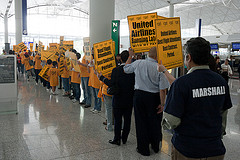

Recent airline strikes across the globe have sent ripples through the travel industry. From flight cancellations to last-minute hotel searches, travelers are dealing with significant disruptions to their well-laid plans. This article will explore the impact of these strikes on hotel reservations and travel plans, offering insights into navigating the uncertainty.
The escalating wave of airline strikes is creating havoc in the air travel sector. Pilots, flight attendants, and other staff are taking action in protest over various issues, from compensation and working conditions to safety concerns. This collective action is disrupting schedules, causing significant cancellations and delays, and leaving travelers stranded.
These disruptions ripple outwards, directly affecting hotel reservations. Individuals and families with already-booked flights face a complex dilemma. If their flights are canceled, they may need to alter their hotel arrangements, potentially losing money on non-refundable bookings. Hotels, in turn, grapple with fluctuating occupancy rates and the need to accommodate canceled guests.
Travelers, caught in the middle, are left with difficult choices. Many are opting for alternative travel options, potentially seeking out newer destinations or shifting their travel schedules to avoid the disruption. Others are exploring their travel insurance options to cover potential financial losses.
The impact on hotel reservations extends beyond individual travelers. Travel agents and tour operators are facing unprecedented challenges. Pre-booked packages and tours are affected, causing them to renegotiate arrangements, re-book flights and hotels for their clients, and manage customer expectations and anxieties.
Navigating this complex situation requires careful planning and consideration. Travelers should stay informed about the latest strike updates, especially if their travel dates fall within the affected timeframe. Regularly checking the airline’s and airport’s official websites is paramount.
It is also crucial to consider travel insurance policies which may cover flight cancellations and accommodations. The rise of flexible travel options is also an important tool in this dynamic environment. Travelers should explore these alternatives before making final decisions.
For hotels, the impact is multi-faceted. Loss of revenue is a key concern, but so is the strain on staff to manage last-minute cancellations and re-bookings. Maintaining positive guest relationships and ensuring transparency is vital.
Furthermore, the industry faces pressure to introduce more flexible booking policies and offer enhanced customer support to minimize the financial implications of these strikes. This includes allowing for free cancellations and re-bookings for affected passengers.
The future of air travel is intertwined with finding ways to mitigate the impact of such disruptions. The industry needs to explore ways to ensure a fair balance between employee demands and customer expectations during periods of industrial action, whether it is over better pay or safer working conditions. Open dialogue and collaborative solutions are crucial for long-term stability and resilience in the aviation sector. Transparency and clear communication are paramount in keeping both travelers and businesses informed during these periods of uncertainty. This will help maintain a good standing within the industry as a whole, as well as build consumer trust and loyalty in the long term as well, too. What is critical is creating systems to help people navigate these events to reduce stress and anxiety, especially for those who have already booked in advance and will be directly affected by the strikes themselves.
Airline strikes are significantly impacting travel plans and hotel bookings globally. Consumers face uncertainty, and the industry is grappling with the need for flexible solutions and robust communication to mitigate disruptions.